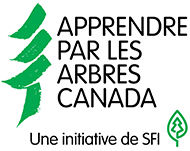
rare Charitable Research Reserve



taryn.jarvis@raresites.org | (519) 650-9336, x 115
Site Web : raresites.org
Our vision is to offer the community, including local Indigenous Peoples, the international community and future generations, a diverse network of connected natural areas, protected intact in perpetuity. As an international leader in conservation, research, restoration and education, rare will serve as a model system that not only demonstrates the link between ecological integrity and economic sustainability but includes meaningful reconciliation with Indigenous Peoples, both of which are critical for the enhancement and quality of life of the planet.
Through the combined efforts of the community, including local Indigenous Peoples, and rare’s team of staff, advisors and artists, we will co-create the most inclusive practices and answers to environmental issues, stewarding the reserve’s diverse network of natural landscapes for ecological integrity and future generations.
Histoire de l'entreprise
Founded in 2001, the rare Charitable Research Reserve is a community-driven urban land trust, nature reserve and environmental institute with its headquarters and first seven locations comprising over 1,200 acres within the Haldimand Tract that spans six miles on either side of the Grand River from source to mouth, land granted to Indigenous Peoples in 1784 to recognize their support for the British in the American Revolution. In Wellington County, rare is creating an Eramosa River Conservation Corridor to protect forever the river and its adjacent forests and uplands –– lands of the highest ecological significance and which are so far largely unaffected by direct human impact –– ensuring connectivity of spaces and survival of species in a rapidly developing area.
The rare Charitable Research Reserve is on its way to becoming a premier environmental research institute with local Indigenous Peoples and international academic expertise, which at the same time is true to its grassroots history and operated as a financially sustainable not-for-profit charitable organization.
We are confident that rare fills a gap, not only in Waterloo Region/Wellington, but also nationally and internationally, by providing a platform where academic excellence and Indigenous ways of knowing and being are part of the community, and stakeholders of different backgrounds can meet and learn from each other. Everything rare does is driven by research, with a strong (but not sole) focus on applied environmental questions. We define the term “environmental” broadly, including not only the ecological research rare has facilitated over the past decade, but also inviting other disciplines to collaborate –– often involving the social sciences, humanities, archaeology, psychology and the arts, to name a few.
Données sur l'entreprise
Our emphasis on community education and engagement, based on living together in reciprocity, comes from our belief that sustainability is an attainable goal that can be reached if we recognize people as part of the environment and work together towards responsible stewardship.
Larger than New York’s Central Park, rare is headquartered at the confluence of the Grand and Speed Rivers. With three cold water streams that flow into the Grand River Watershed, the largest in southern Ontario feeding into Lake Erie, rare is part of an interconnected system with the world’s largest freshwater surface area that provides drinking water for 40 million people.
Within this watershed, rare is comprised of 24 different habitat types, including globally-rare alvars, remnant old growth forest –– of which there is less than 0.1% existing anywhere and situated where the Carolinian Zone meets the Northern Hardwood Zone, with trees more than 250 years old –– and six of eight pre-settlement landscapes, supporting rich biodiversity reminiscent of the original biota of southern Ontario prior to extensive settler land use. It has an exceptional array of flora and fauna, with species that are ranked “significant” or “at risk” regionally, provincially, nationally and even globally.



